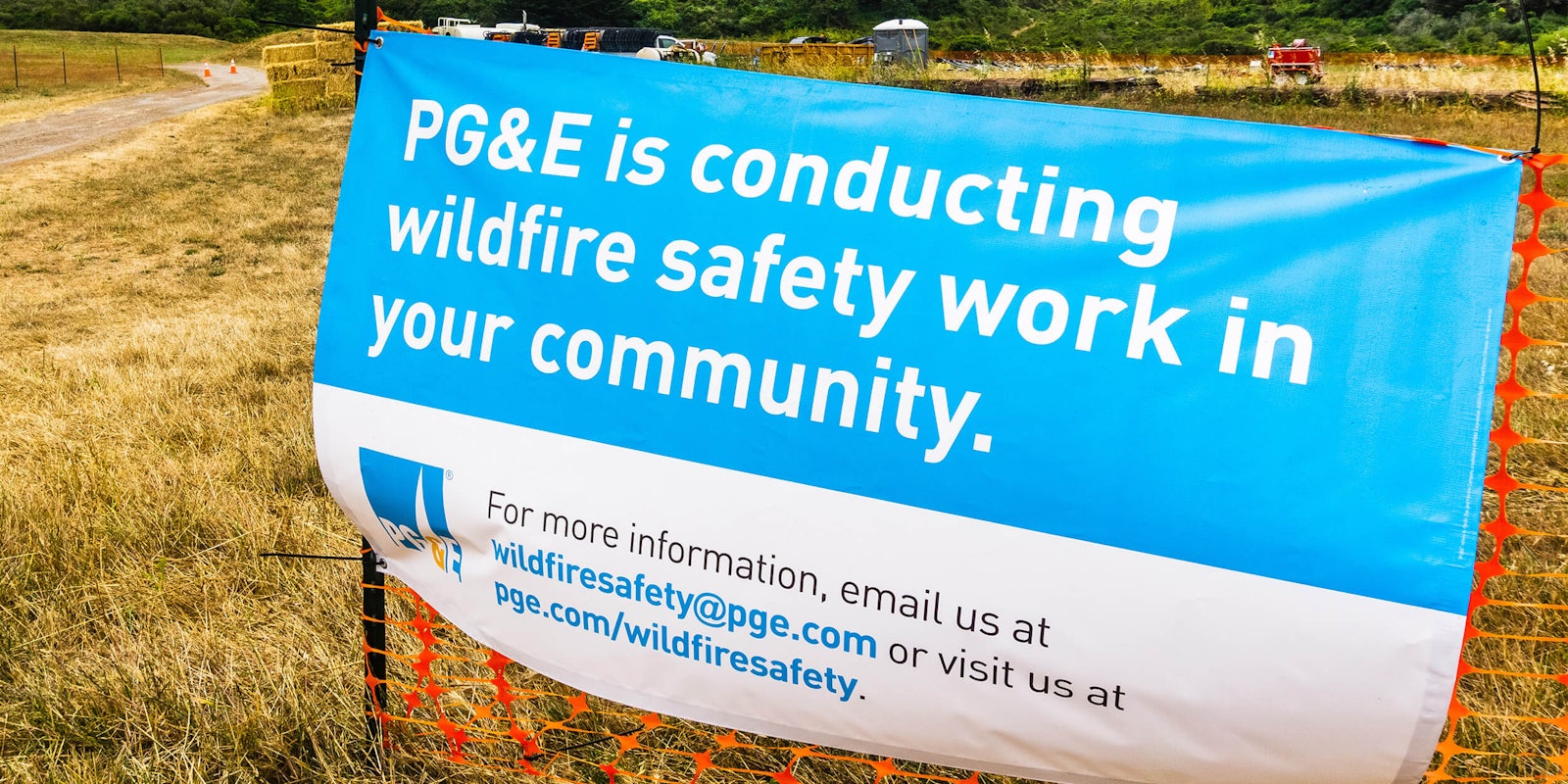Conversations surrounding the nearly days-long power outage induced in California to prevent blazes are missing key populations it affected: the disabled and elderly communities.
The power outage, induced by provider Pacific Gas and Electric Co (PG&E) in order to lower the risks of wildfires that “faulty power lines” could spark, affected millions of people in California starting Wednesday, the Associated Press reported. It was “the largest preventive outage in state history,” according to the report, and officials said power could be out for as long as five days in some areas.
Many took to Twitter over the two days to express their frustration with planning for the outage and it disproportionately affects people with disabilities.
“If it saves a life.” Except the extremely poor planning, especially regarding very vulnerable populations (disabled, elderly, dependent on medical devices, oxygen, chilled insulin, power chairs/scooters) could easily have cost lives. We don’t know yet.#pgeshutdown https://t.co/8bzgJl70TU
— Sarah E. Olson (@SarahEOlson2009) October 11, 2019
👀Tell that to the older, disabled, & chronically ill folks scrambling right now to take care of themselves & their communities #PGEshutoff #PGEshutdown #PSPS #CripTheVote https://t.co/RocQRscD8G
— Alice Wong 王美華 (@SFdirewolf) October 11, 2019
“No one is more impacted by #pgeshutdown than disabled folks who are forced to live in abject poverty AND often are on machines requiring electricity. Lives are at stake,” wrote journalist Victoria Brownworth.
Many were responding to a tween by City of Berkley services that asked people to “use their own resources to get out.”
Hi Melissa – We are asking those in the potentially affected area who are power-dependent for medical reasons to use their own resources to get out. If they are unable to relocate and power loss will cause an immediate life threat, call 911 for transport to an Emergency Room.
— City of Berkeley (@CityofBerkeley) October 9, 2019
People pointed out the disabled community is affected in ways that many abled people take for granted.
“This is more than a minor inconvenience to hundreds if not thousands of disabled, [older], & chronically ill people,” wrote Alice Wong, founder of the Disability Visibility Project. For some, it’s a matter of life and death.
I’m truly terrified for disabled people who need power to keep meds in the fridge, charge devices, etc. Seriously, how do they expect disabled people to be ok? #pgeshutdown #pgeshutoff #CripTheVote
— Erin Gilmer (Legacy) (@GilmerHealthLaw) October 9, 2019
https://twitter.com/Rachelphoenix/status/1182154841465901056?s=20
Um, @PGE4Me it’s a fundamental service that we expect & deserve AND need to live. Like, literally. This is more than a minor inconvenience to hundreds if not thousands of disabled, okder, & chronically ill people. #PGEshutoff #PGEshutdown #CripTheVote #PSPS #SuckItAbleism https://t.co/s0L93UPa5K
— Alice Wong 王美華 (@SFdirewolf) October 11, 2019
Basically. It’s our fault for not having a foolproof plan, extensive social support & infinite resources #PGEshutoff #PGEshutdown #CripTheVote #PSPS #SuckItAbleism
— Alice Wong 王美華 (@SFdirewolf) October 11, 2019
I have a medication pump. If I don’t charge it every 2 days, I’ll die. I have a solar charger and 1 backup battery but if it’s cloudy or very foggy, I may not survive beyond 3 days. It’s terrifying to consider that a company can make that call, for prevention.
— Kristapps (@CoolKrista) October 10, 2019
In a Facebook event for a vigil outside PG&E’s office in Oakland, California, organizers pointed out the nuances that are important to remember in such a crisis.
“A power shutoff does not affect everyone equally,” the event description said. “The most vulnerable among us: the sick, the elderly, the poor, will face significantly harsher impacts from the shutoff with less ability to deal with the consequences. This is a climate justice issue and we will call it out as such.”
Stacey Park, a disability justice worker, shared their remarks from the vigil in a Facebook post on Thursday, “Whether it is fascism or environmental climate crisis created by greed, disabled people—especially disabled people of color—are, as disability justice activist Patricia Berne says, the canary in the coal mine,” Park said. “How we are treated is often an indicator that there is a big problem.”
https://www.facebook.com/smilbern/posts/859372425237?__tn__=H-R
Park explained how a power shutdown that might seem regular to abled people affects the disabled community in a range of ways: American Sign Language is difficult to understand without enough light, for example, and blind people have trouble crossing the street without traffic lights.
“A friend is going without her nebulizer treatments,” Park said. “A neighbor didn’t have a way to store his insulin. Another community member is home bound because she needs power to open and close their garage.”
Even the solutions suggested, such as portable electric generators, require some level of privilege.
I love when people say “buy a generator” to #disabled people, like it’s not a big ticket item very few disabled people could afford and requires ability and space to run.#pgeshutdown
— Victoria Brownworth (@VABVOX) October 10, 2019
Twitter user Rachel Manija Brown wrote aptly, “If they’re cutting off our power ‘to save lives’ they need to also save the lives of those of us who depend on power.”
https://twitter.com/Rachelphoenix/status/1182339873195220993?s=20
READ MORE:


